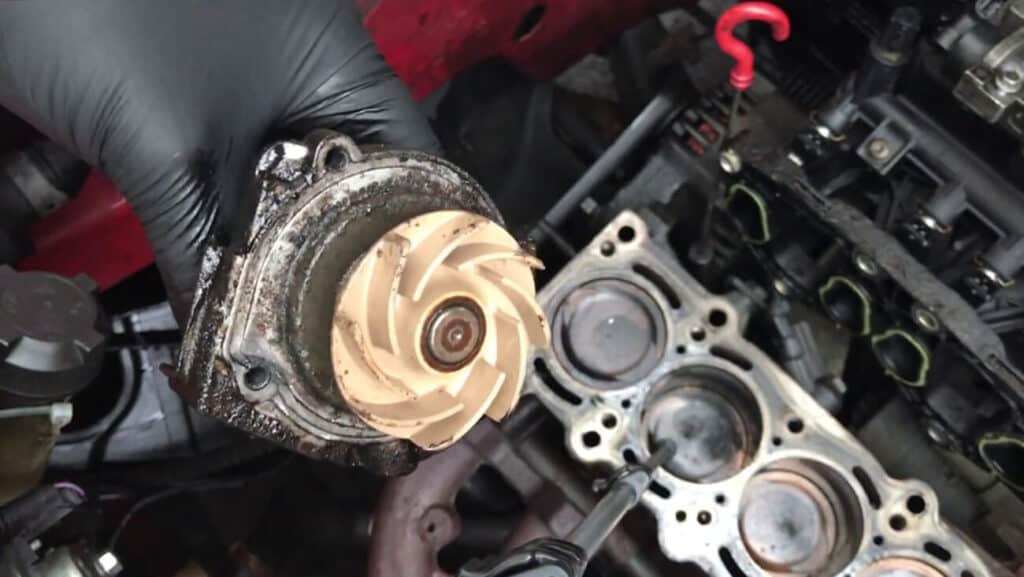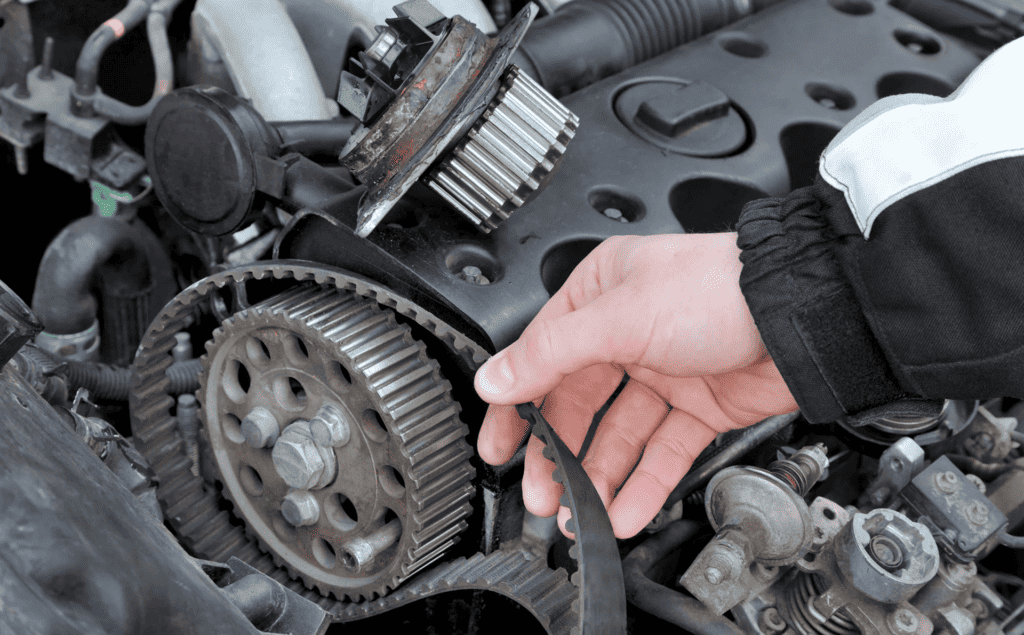Unveiling the Heart of Your Vehicle’s Cooling System
Welcome to the world of water pumps – the unsung heroes of your vehicle’s engine. Nestled deep in the engine bay, these vital components are pivotal in maintaining your car’s health. This article will unravel the mysteries of water pump maintenance, a topic your mechanic wishes every car owner knew more about. Understanding the role and care of your water pump is not just about avoiding breakdowns; it’s about ensuring the longevity and efficiency of your vehicle.
Anatomy of a Water Pump: Understanding Its Function and Importance
Essential Cooling Component: The water pump, nestled within your vehicle’s engine, acts as the chief facilitator of the cooling process. It’s responsible for continuously pumping coolant from the radiator into the engine and back. This cycle is vital for dissipating the immense heat generated by the engine during operation. A fully functioning water pump ensures that the engine operates within its ideal temperature range, preventing overheating and maintaining optimal performance.
Impact on Engine Health: The importance of the water pump in regulating engine temperature cannot be overstated. Overheating is one of the leading causes of engine damage, and without a properly functioning water pump, the risk of boiling the engine increases exponentially. This is particularly critical under harsh driving conditions or in extreme weather, where the engine is prone to produce more heat.

Early Warning Signs: Detecting Water Pump Issues Before They Escalate
Knowledge is power, especially when it comes to identifying early signs of water pump failure. We will guide you through common symptoms:
• Coolant Leaks: One of the first signs of a failing water pump is coolant leaking from your vehicle. Keep an eye out for puddles of coolant (often a green or orange fluid) under your car, which could indicate a leak from the water pump gasket.
• Overheating Engine: If your vehicle’s temperature gauge is consistently higher than usual, it may signal a malfunctioning water pump. The pump might not be effectively circulating coolant, leading to engine overheating.
• Noise from the Engine Bay: Listen for a grinding or whining sound from the front of the engine. This noise can indicate a failing water pump bearing, a critical component for the pump’s operation.
• Rust or Corrosion: Visible rust or corrosion around the water pump area can be a sign of a longstanding leak or coolant contamination, both of which can impair pump function.
• Steam from the Radiator: If you see steam emanating from the radiator while driving or after stopping, it’s a significant indicator that the water pump is not adequately cooling the engine.
These signs are your car’s way of signaling for help, and catching them early can save you from costly repairs.
Routine Checks and Balancing Acts: The Key to Longevity
Regular Maintenance Checks: A well-maintained water pump is key to a healthy engine. Regular checks involve inspecting the pump for leaks, ensuring that the coolant level is adequate, and listening for any unusual noises from the pump area. These preventive measures can spot early signs of wear or damage, allowing for timely intervention before more serious problems develop.
Keeping the System Clean: Beyond just checking the pump, it’s crucial to maintain the entire cooling system. This includes using the right type of coolant, flushing the system at recommended intervals, and checking for any signs of rust or contamination. A clean and well-maintained cooling system directly contributes to the longevity and efficiency of the water pump.
The Impact of Neglect: What Happens When Maintenance Is Overlooked
Consequences of Neglect: Ignoring water pump maintenance can have serious repercussions. Over time, a neglected pump may develop leaks, suffer from bearing failure, or experience impeller deterioration. These issues can lead to inefficient coolant circulation, resulting in overheating. An overheated engine not only performs poorly but is also at risk of severe damage, including warped components and head gasket failures.
The Domino Effect: The failure of a water pump doesn’t just affect the pump itself; it can lead to a chain reaction of damage throughout the engine. Overheating can cause expansion and contraction in engine components, leading to cracks and warps. In severe cases, it can result in a complete engine breakdown, translating to costly repairs or even a full engine replacement.
Pro Tips for Water Pump Care: From Fluids to Belts
Here, we’ll share some professional tips and tricks for water pump care:
• Selecting the Right Coolant: Always use the type of coolant recommended by your vehicle’s manufacturer. Using the wrong coolant can lead to corrosion and damage within the cooling system, including the water pump.
• Checking the Drive Belt: Regularly inspect the water pump’s drive belt for signs of wear, such as cracks or fraying. A damaged belt can impair the pump’s operation and lead to engine overheating.
• Timely Coolant Replacement: Change the coolant at intervals specified in your vehicle’s manual. Old or contaminated coolant can lead to inefficiencies and increase wear on the water pump.
• Monitoring for Leaks: Regularly check for leaks in the cooling system. Early detection of leaks can prevent more significant issues with the water pump and cooling system.
• Avoiding Contaminants: Ensure that your cooling system is clean and free from contaminants. Debris and dirt can clog the water pump and affect its efficiency.
• Proper Tension of Belts: Make sure that the water pump belt is correctly tensioned. Over-tensioned belts can put excess strain on the water pump bearings, while a loose belt can lead to inefficient pump operation.
• Replacement Timing: Be aware of your water pump’s expected lifespan and plan for replacement as necessary. Combining water pump replacement with other scheduled maintenance (like timing belt replacement) can be cost-effective and efficient.

When to Consult a Professional: Understanding the Limits of DIY
Recognizing the Need for Expertise: While basic maintenance like monitoring coolant levels can be done by most car owners, diagnosing and repairing water pump issues often require professional skills. It’s important to recognize when a problem is beyond your DIY capabilities. Symptoms like persistent leaks, overheating despite adequate coolant levels, or significant noises from the pump area are signals that professional help is needed.
Benefits of Professional Maintenance: Seeking professional assistance ensures that your water pump and cooling system are thoroughly examined using advanced diagnostic tools and repaired with precision. Professionals can identify underlying issues that might not be apparent to the untrained eye, ensuring that all aspects of the cooling system function harmoniously. Moreover, professional servicing often comes with a warranty, providing an extra layer of assurance for your vehicle’s health.
Embracing Proactive Maintenance for Peace of Mind
In closing, we reinforce the importance of regular and proactive maintenance of your vehicle’s water pump. This is not just about preventing breakdowns; it’s about ensuring that your vehicle remains a reliable companion on all your journeys. And remember, for professional water pump maintenance and a wide range of mobile mechanic services, Uchanics is here to help you keep your car running smoothly.
